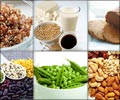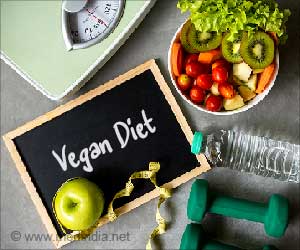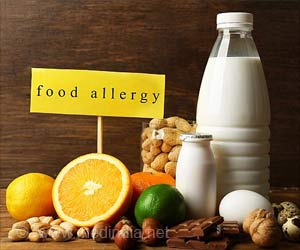- How does Plant-Forward (Plant-Based) Eating Benefit Your Health? - (https://www.heart.org/en/healthy-living/healthy-eating/eat-smart/nutrition-basics/how-does-plant-forward-eating-benefit-your-health)
- Protein Content Of Common Foods - (https://www.hopkinsmedicine.org/-/media/bariatrics/nutrition_protein_content_common_foods.pdf)
About
Incorporating protein-rich foods into your diet is essential for building and maintaining muscle, repairing tissues, and supporting overall health. While meat is a common source of protein, there are many plant-based and non-meat options that can provide you with the necessary nutrients (1✔ ✔Trusted Source
How does Plant-Forward (Plant-Based) Eating Benefit Your Health?
Go to source).
Did You Know?
Plant-based proteins can help build muscle and support overall health just as effectively as meat! #medindia #plantbasedprotein
20 Tasty Protein Alternatives for a Meat-Free Diet
Here are 20 protein-rich foods that are plant-based (2✔ ✔Trusted Source
Protein Content Of Common Foods
Go to source):
1. Beans
Beans are one of the top plant-based sources of protein, and the variety is black beans, kidney beans, and navy beans with around 7 grams of protein in half a cup. These can be added to soups, salads, veggie tacos, or made into burgers.
2. Almonds
Almonds offer protein, healthy fats, and other nutrients like vitamin E, calcium, and magnesium. One-quarter cup of almonds contains approximately 6 grams of protein. While almond milk is low in protein, whole almonds and nut butters are great alternatives.
3. Nuts and Nut Butters
Nuts like cashews, almonds, and peanuts, together with their butters, contain between 4 to 7 grams of protein per quarter cup or two tablespoons. They are excellent for use as a snack or additive in smoothies, salads, or oatmeal.
4. Soy
Soy is a tremendous provider of plant protein, available in products such as tofu, tempeh, and soy milk. One cup of soy milk contains approximately 7 grams of protein, and tofu offers a whopping 22 grams per half-cup serving.
5. Legumes
Legumes include lentils, peas, beans, and chickpeas. One cup of cooked green peas provides approximately 9 grams of protein. They are an easy addition to salads, pastas, or soups.
6. Lentils
Lentils are a protein-rich legume, providing about 18 grams of protein per cooked cup. They are also a good source of iron and can be used in a variety of dishes like lentil ragu or meatball alternatives.
7. Tofu
tofu is an all-purpose protein source produced from soybeans. A half cup of firm tofu contains 22 grams of protein. It can be grilled, fried, included in smoothies, or made into stir-fries.
8. Tempeh
One cup of tempeh has about 34 grams of protein. It is a nutty-flavored fermented soy product that can be used for burgers, tacos, and stir-fries.
9. Quinoa
Quinoa is also a complete protein that incorporates all nine essential amino acids. On average, one cup cooked quinoa provides 8g of protein and is further high in fiber, making an excellent base for salads or bowls.
10. Brown and Wild Rice
Brown rice contains about 6 grams of protein per cooked cup, while wild rice contains around 7 grams. The whole grains are excellent side dishes or can be added to soups and casseroles.

11. Chickpeas
Another large type of legume packed with proteins is the chickpeas. It is indicated that 1 can of chickpeas contains approximately 18 grams of protein. They are eaten in salads, used in the preparation of hummus and can be baked as crisps. Hummus contains chickpeas, tahini and olive oil with 2 tablespoons giving about 5 grams of protein. It is well suited for using with such fresh vegetables or whole grain crackers.
12. Seeds
Chia, hemp, sunflower, and sesame are some of the numerous seeds which in spite of their minuteness are big when it comes to the contribution of protein. For example, 3 tbsp of hemp seeds contains close to 9 grams of protein. They are good in smoothies, oatmeal or to add on salad.
13. Seitan
Seitan coming from wheat gluten is a product with a meat-like texture containing 21 grams of protein per third cup. It is used in plant based meals and has a chewy nature akin to chicken.
14. Other Protein-Rich Fruits and Vegetables
Other fruits and vegetables, while not as high in protein, do contain some protein-like jackfruit which has 3 grams of protein per cup, or artichokes with 4 grams of protein per medium-sized vegetable. Including these with other protein-containing foods will go a long way in increasing your intake of protein.
15. Breads with Sprouted Grains
Sprouted grain breads are made from grains which have begun to sprout possibly making them even healthier. Each piece of sprouted grain bread contains about 5 grams of protein, which can be used for sandwiches and toasts.
16. Nutritional Yeast
Nutritional yeast commonly used by the vegan, it has a cheese-like flavor though rich in B12 vitamin. A quarter cup provides approximately 8 grams of protein and is perfect on popcorn, pasta or mixed into salads.
17. Edamame
The young soybeans known as edamame are delicious to eat and contain approximately 17 grams of protein per cooked cup. They also contain a lot of fibre and could be used in salad or just baked and taken with a pinch of salt.
18. Greek Yogurt
Despite being made from milk, Greek yogurt is very rich in protein with the 156-grams serving providing the consumer with about 16 grams of protein. Because of the straining process it is denser, it has a more pronounced sour taste, and is also creamier than normal yogurt. Plain Greek yoghurt is an excellent source of protein packed snack that is best taken with nuts, nut butter spread on it, or blended with fruits.
19. Sweet Potatoes
Sweet Potatoes are a good carbohydrate food and also contain more protein than the yam. Sweet potatoes are very healthy for human consumption. Just one medium sweet potato has about 4 grams of protein and is also loaded with nutrients and fiber.
20. Oats
Another source of protein is oats which contain approximately 14 grams of protein per 100 grams of rolled oats. We can take oatmeal, mix it with a smoothie, or use it in baking.









